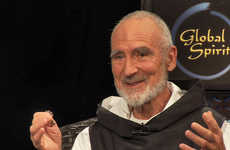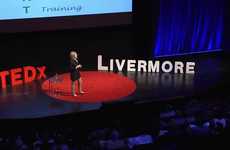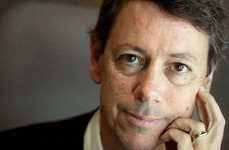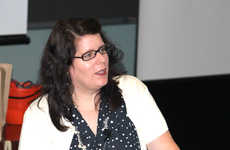
David Steindl-Rast Keynotes
David Steindl-Rast's lectures impart his extensive theological knowledge into daily life....

Need Inspiration?
Get inspired by 4,000+ keynote speaker videos & our founder, a top keynote speaker on innovation.
David Steind-Rast Delivers a Powerful Importance of Gratitude Speech
Vasiliki Marapas — November 29, 2013 — Keynote Trends
References: youtu.be
Brother David Steindl-Rast shares an crucial step towards achieving happiness in his importance of gratitude speech. He reverses the causal assumption that happiness makes us grateful, instead theorizing that possessing a sense of gratitude that causes happiness.
Gratitude is something that is experienced when something valued is freely given, but Steindl-Rast believes that we can not only have 'grateful experiences,' but that we can "live gratefully." The key to doing so is to recognize that every moment is a given moment that represents an opportunity. This is not to say we should be grateful for everything -- certainly not violence, loss, war, oppression or exploitation. Rather, he advises us to recognize the rise to the challenge in onerous situations.
He suggests that we "stop, look and go:" stopping to recognize moments that would normally be lost in the rush of daily life, opening our hearts to their potential and making the most of that opportunity, whether it's one of suffering, learning or enjoyment. In turn, this will create positive change, because grateful people act from a place of abundance rather than scarcity, which prevents violence and nurtures peace.
Gratitude is something that is experienced when something valued is freely given, but Steindl-Rast believes that we can not only have 'grateful experiences,' but that we can "live gratefully." The key to doing so is to recognize that every moment is a given moment that represents an opportunity. This is not to say we should be grateful for everything -- certainly not violence, loss, war, oppression or exploitation. Rather, he advises us to recognize the rise to the challenge in onerous situations.
He suggests that we "stop, look and go:" stopping to recognize moments that would normally be lost in the rush of daily life, opening our hearts to their potential and making the most of that opportunity, whether it's one of suffering, learning or enjoyment. In turn, this will create positive change, because grateful people act from a place of abundance rather than scarcity, which prevents violence and nurtures peace.
5.5
Score
Popularity
Activity
Freshness
















